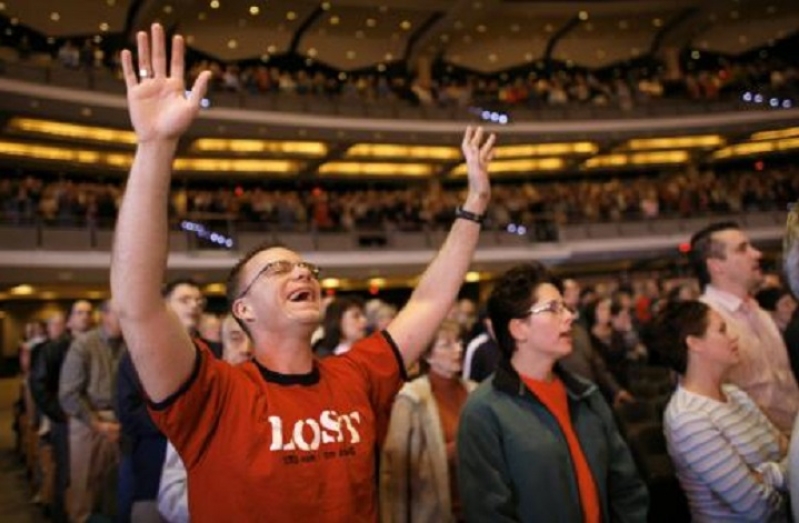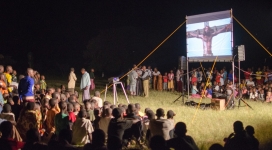
The percentage of white Christians in the US has drastically declined due to immigration and growing numbers of people who identify as religiously unaffiliated, according to a new survey.
The poll from the Public Religion Research Institute (PRRI) found that just 43 per cent of Americans now identify as white and Christian, a significant drop from the 81 per cent of Americans who identified as white Christians in 1976.
Overall, Christians remain a large majority in the United States, at nearly 70 percent of Americans. Unaffiliated Americans - people who say they have no particular religious affiliation - make up 24 percent of Americans overall.
The drop occurred across the spectrum of denominations, including white mainline Protestant denominations such as Presbyterians and Lutherans. The survey also found a decline among white evangelicals; about 17 percent of Americans now identify as white evangelical, compared to 23 percent a decade ago, according to the survey.
Among American Catholics, 55 percent now identify as white, compared to 87 percent 25 years ago, amid the growing presence of Latino Catholics, according to the report.
"This report provides solid evidence of a new, second wave of white Christian decline that is occurring among white evangelical Protestants just over the last decade in the US," said Robert P Jones, the PRRI's CEO and author of The End of White Christian America.
"Prior to 2008, white evangelical Protestants seemed to be exempt from the waves of demographic change and disaffiliation that were eroding the membership bases of white mainline Protestants and white Catholics. We now see that these waves simply crested later for white evangelical Protestants."
Dan Cox, PRRI research director, explained that the rise of non-Christian groups is influenced by immigration and the fact that people who immigrate tend to be younger, and religious disaffiliation, which also affects the younger generation.
"The young are much less likely to believe this is a 'Christian nation' or to give preference to Christian identity. Young people and seniors are basically inhabiting different religious worlds," he said.
The PRRI survey of more than 100,000 people was conducted from January 2016 to January of this year and has a margin of error of plus or minus 0.4 percentage points.
The study's findings corroborate those of the Pew Research Center, which in 2015 found that the number of white Christians in the US had fallen to 46 per cent from a 55 percent majority as recently as 2007.
The Pew survey also found that overall, the "Christian share of the U.S. population is declining," as there are 5 million fewer Christians across the United States than there were in 2007, and millions more who identify as atheist.
Christianity Today contributor Ed Stetzer explained that the statistics "are simply starting to show a clearer picture of what American Christianity is becoming-less nominal, more defined, and more outside of the mainstream of American culture."
He wrote, "For example, the cultural cost of calling yourself 'Christian' is starting to outweigh the cultural benefit, so those who do not identify as a 'Christian' according to their convictions are starting to identify as "nones" because it's more culturally savvy.
Because of this, the statistics show (on the surface) that Christianity in America is experiencing a sharp decline. However, that's the path of those who don't read beyond the surface. If there remains a relatively stable church-engaged, convictional minority, and there is a big movement on self-identification, that means that the middle is going away."
Stetzer concluded, "Christianity is, and will continue, to lose its home field advantage; no one can (or should) deny this. However, the numerical decline of self-identified American Christianity is more of a purifying bloodletting than it is an arrow to the heart of the church."







